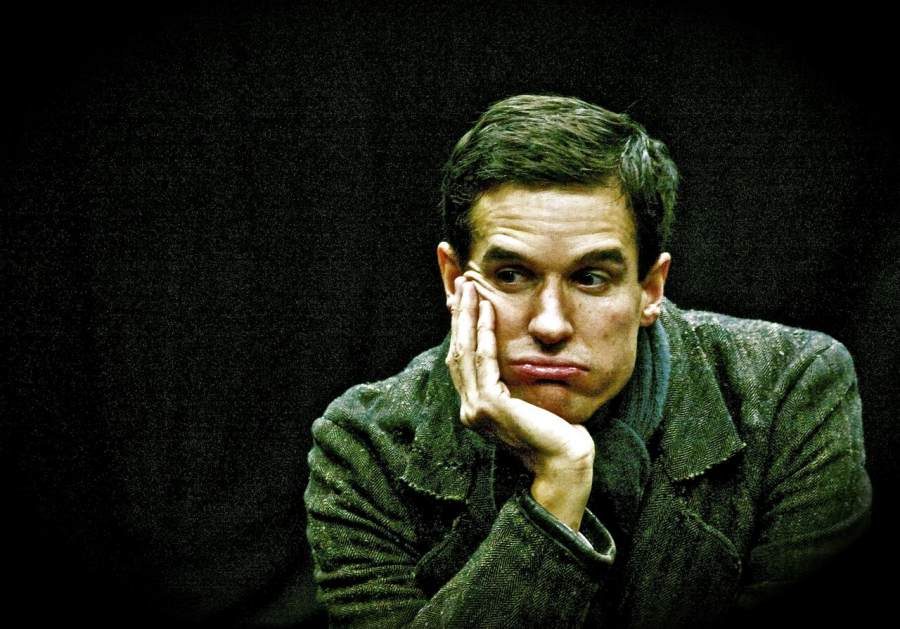

There’s a bewitching sense of history in the magical inner workings of A Regular Little Houdini, playing now at 59E59 Theaters. Daniel Llewelyn-Williams has created an entrancing tale out of a historically dark time in the history of South Wales, with his charismatic one-man show.
The story revolves around three central figures, a boy, Alan, his father and his Grandfather, Gami, who is also the Chief Constable in the small coastal town of Newport. The delightful and sometimes harrowing stories of Alan’s life revolve around Alan’s identification with the famous magician Harry Houdini.
Alan’s fascination with Houdini begins when the “Houdini Book of Magic” is given to Alan by his father, a dockworker who insists that Alan stay in school. Alan reads the book from cover to cover every day and displays a marvelous dexterity with sleight of hand tricks. Sorry, I meant to use the word “amazements,” not tricks: You see, Alan falls asleep every night working out how to do sleight of hand work and lock picking and other marvelous feats, and he feels the word “trick” denigrates the enormous amount of time and energy it takes to create these wonders, these “amazements” of Houdini’s and his.
Alan’s Gami tells him that he can be anything “as long as he looks beyond the normal,” which Alan takes to heart. To do this, to break out of the poverty Alan sees and experiences, he begins to concoct his own version of an “amazement” in the form of hanging off of a large bridge and riding a gondola carrying townsfolk and dockworkers from one side of the muddy banks of the Usk river to the other. This will take him approximately ten minutes of strength (hanging on a dolly, riding 50 feet or so above the riders, over both the Usk river and its treacherously muddy banks). He needs stamina to make the journey back and forth and so he begins to practice in secret. He’s also been practicing holding his breath underwater, with varying results. The harrowing tale of his eventual attempts mirror Houdini’s work at the time in escaping from underwater perils while handcuffed, stunts which are well documented. The success of these stories told by Llewelyn-Williams is in large part due to the fact that we are vaguely familiar with Houdini’s personal story and public career.
Houdini at the time called himself a “self-liberator,” and it is implied that Alan wishes for a larger life than being a dockworker can provide. Alan, ensorcelled with Houdini’s image, falls asleep with both the book and a lock he continues to try to pick to no avail. Astoundingly, as we wade further into the narrative we find him handcuffed to the great magician himself, who has not learned how to pick the particular cuff they are imprisoned by. It’s a rewarding moment of levity and gives the proceedings a winning flair, simultaneously engaging us with both Houdini’s humility and Alan’s triumph.
To further the compelling and heartrending aspects of the play, the character of Alan is based on Llewelyn-Williams’ father, Alan John Williams, who passed away earlier this year. I found Llewelyn-Williams’ portrayal of Alan, Gami and Alan’s father very affective, bringing emotional clarity to the father and son relationship. A son bringing an artistic statement to us through his grief? Precisely the kind of theatre and commitment to excellence that we yearn for here in New York City. Bravo, Mr. Llewelyn-Williams, bravo. Expert direction is provided by Joshua Richards, and the entire evening is briskly paced and nicely curated by the professional staff at 59E59 Theaters. On the whole, it’s a prodigious journey through history and Alan and Houdini’s wondrous amazements.